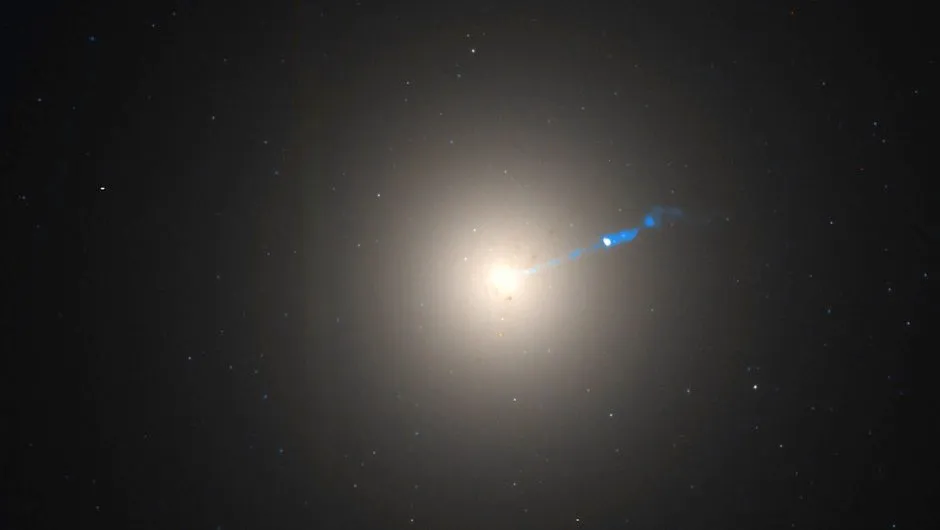
Black holes are difficult to find. Their intense gravitational force is so strong that not even light can escape their pull, making them ‘invisible’.
But by measuring the speed of material that surrounds a black hole, it is possible to calculate its mass using the laws of gravity. If there is more mass than is accounted for by the stars we see, the rest could be due to a black hole.
By the early 1990s, it was suspected that a supermassive black hole (SMBH) was at the centre of a handful of galaxies. “Soon after its launch, Hubble confirmed earlier SMBH detections by taking images five times sharper than those obtained from the ground,” explains Dr Marc Sarzi Head of Research at the Armagh Observatory & Planetarium and research visitor at the University of Hertfordshire.
The Hubble Space Telescope became known as a ‘black hole hunter’, due to its ability to measure the speed of surrounding gas and stars. Results from its observations were surprising, says Dr Sarzi. “SMBHs have a radius comparable to that of our Solar System, and yet can only directly affect the motion of stars and gas in the very central regions of their host galaxies,” he says.
It suggests they evolved together, he explains. “It has turned SMBHs from being exotic curiosities to an integral part of our understanding of galaxy formation.”
Discover more about the Hubble Space Telescope:
- 10 of Hubble’s greatest discoveries
- Beautiful Hubble Space Telescope images you probably haven’t seen before
- 10 future space missions to look forward to
- Who really discovered Hubble’s Law?
From BBC Sky at Night Magazine:
- Hubble at 30: three decades of the famous space telescope
- 'How we serviced Hubble': Mike Massimino reveals all
- How Hubble’s successor the James Webb Space Telescope will observe the Universe
- Astronaut Kathy Sullivan on launching the famous space telescope
- What was wrong with Hubble’s mirror, and how was it fixed?
- Radio Astronomy Podcast: 30 years of the incredible space telescope
- How did the space telescope come about?
- What Hubble's launch meant to me, as an amateur astronomer
- How Hubble changed our view of the Universe
- Why did astronauts service the Hubble Space Telescope?
- How the Hubble Space Telescope is used to study exoplanets
- A history of the Hubble Space Telescope
